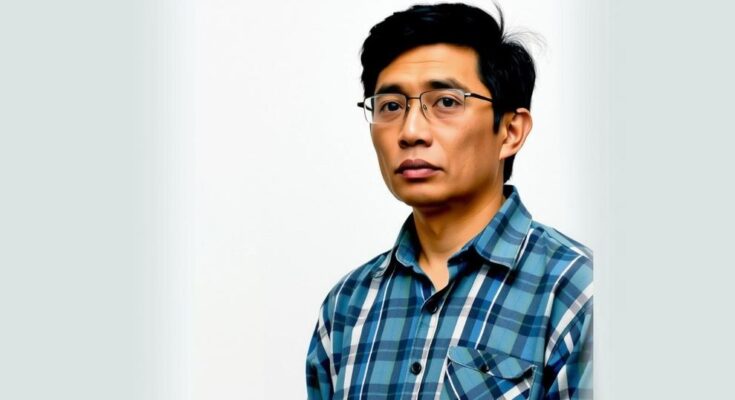Nearly 33 rights groups appealed to Thailand’s prime minister to release Y Quynh Bdap, a Vietnamese activist facing extradition on terrorism charges. Bdap, a UN-recognized refugee, fears torture if returned to Vietnam. He was arrested while seeking asylum after fleeing persecution since 2018, and now his extradition appeal is pending, amidst concerns over political motivations behind his charges.
In a passionate plea to Thailand’s prime minister, a coalition of nearly 33 human rights organizations has urged the immediate release of Vietnamese activist Y Quynh Bdap, fearing he may face torture if extradited. Holding UN refugee status, Bdap was apprehended in June while seeking asylum in Canada, based on a Vietnamese warrant that charges him with terrorism related to anti-government protests in his homeland. Meanwhile, he remains in detention in Bangkok as a court has ordered his extradition, with his appeal awaiting decision. Bdap, a prominent figure advocating for the Montagnard ethnic minority’s rights, fled Vietnam in 2018 to escape persecution for his activism. His organization offers training on human rights and legal documentation to Montagnards, making them targets for the Vietnamese government. Convicted in absentia, he faces a ten-year sentence on terrorism charges linked to riots in Vietnam’s Dak Lak province, despite asserting that he had “absolutely nothing to do with that violent incident.” The calls from human rights groups raise serious concerns over the legitimacy of the charges against him, emphasizing fears of politically motivated trials within Vietnam’s justice system. After Bdap’s arrest, a spokesperson for Prime Minister Paetongtarn Shinawatra stated that they had not yet received the letter urging his release, leaving the activist’s fate shrouded in uncertainty. Critics argue that as Thailand prepares to assume a seat on the UN Human Rights Council, it must showcase its commitment to upholding human rights, especially for individuals like Bdap, who potentially face persecution for their beliefs. Interestingly, alongside Bdap, around 100 others were tried in Vietnam amid the unrest, with dozens convicted of terrorism, intensifying human rights scrutiny against the government. Meanwhile, foreign ministry representatives claim they are combating terrorism aligned with international law while rejecting criticism of their judicial approach. Observers note that the fairness of these trials remains in question, especially concerning the Montagnard minority, whose rights have been historically marginalized. The action demanded by NGOs becomes a pivotal moment, a litmus test for Thailand to solidify its human rights commitments. Key figures in the advocacy community stress that Y Quynh Bdap deserves unconditional release while his appeal unfolds, advocating for family unity as he should not be subjected to state violence due to political machinations from Vietnam’s authoritarian regime. As the world watches, his story echoes the struggle for rights and belonging, stirring a call for justice that transcends borders and ideologies.
The plight of Y Quynh Bdap sheds light on broader issues of human rights and political repression in Vietnam, particularly concerning the treatment of ethnic minorities such as the Montagnards. Long criticized for their harsh treatment of dissenters and activists, the Vietnamese government often utilizes accusations of terrorism to suppress voices advocating for religious and civil rights. Bdap’s situation also highlights the challenges faced by refugees and asylum seekers in Southeast Asia, where governments grapple with balancing international obligations against domestic political pressures. As Thailand steps into its new role on the UN Human Rights Council, its handling of this situation could either fortify or undermine its global human rights reputation.
The case of Y Quynh Bdap stands at the crossroads of justice and human rights, invoking urgent calls for Thailand to act responsibly as a new member of the UN Human Rights Council. With mounting pressure from global and local rights groups, the stakes are high not just for Bdap’s future but also for Thailand’s integrity on the international stage. Observers advocate for his immediate release to ensure he can live peacefully without fear of political persecution, emphasizing the need for a fair and humane approach to those seeking refuge from oppression.
Original Source: apnews.com



